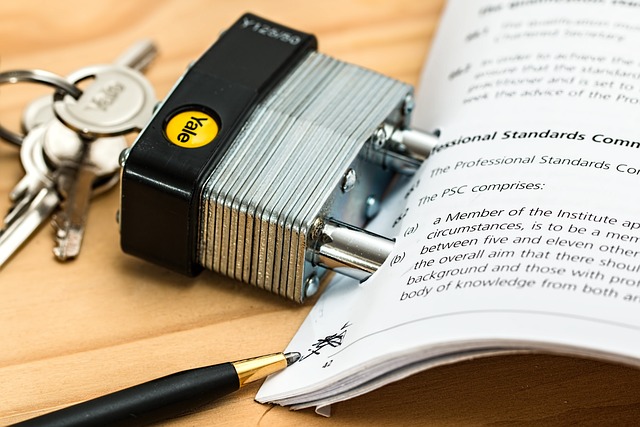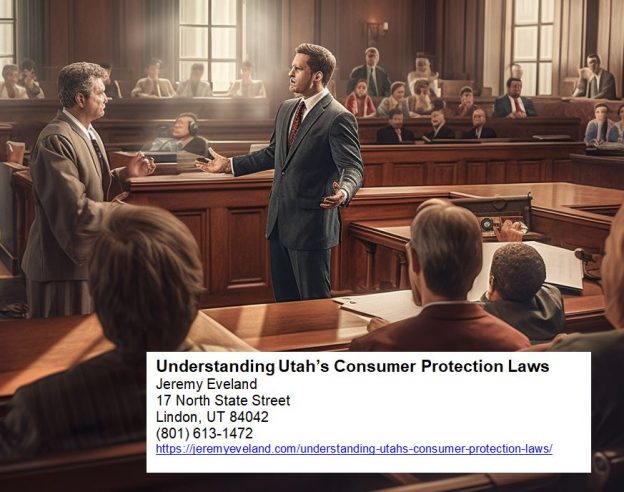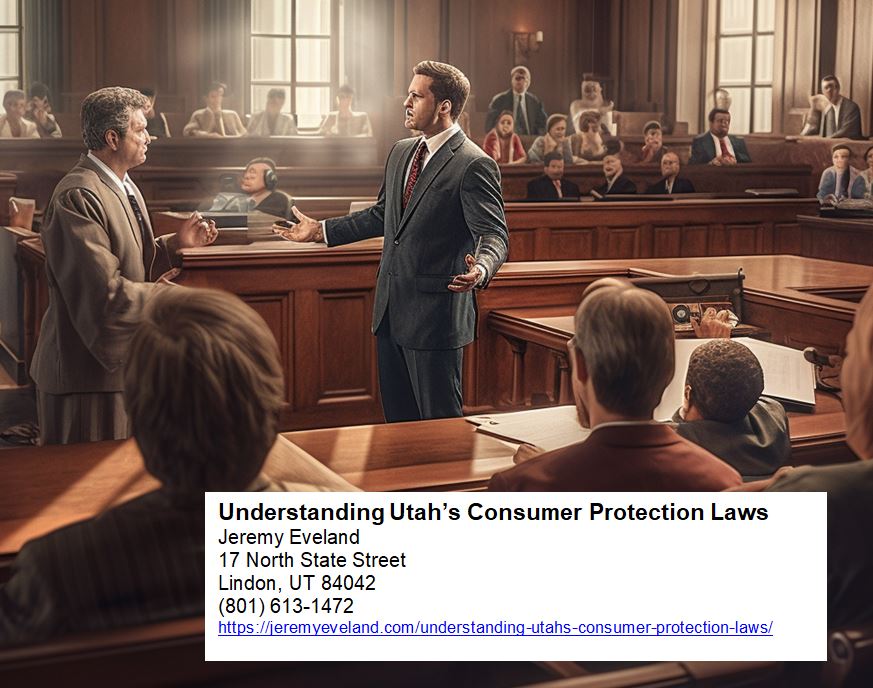Preventing Cybersecurity Breaches With Effective Business Law Practices
Are you concerned about safeguarding your business's sensitive information in today's digital age? With the increasing threat of cyber attacks, it is more important than ever to prioritize cybersecurity and comply with relevant laws and regulations. Hiring a proficient business lawyer in Utah can be instrumental in preventing cybersecurity breaches by providing expert guidance in both cybersecurity law and corporate law. In this article, we will explore the significance of effective business law practices in protecting against cyber threats and the crucial role that a business lawyer plays in ensuring comprehensive protection for businesses in Utah.
In order to effectively prevent cybersecurity breaches, it is essential to identify potential vulnerabilities within your organization. A skilled business lawyer can help you assess your current security measures and identify areas that may be susceptible to cyber attacks. By implementing strong authentication measures, such as multi-factor authentication, you can significantly reduce the risk of unauthorized access to your systems or sensitive data. An experienced business lawyer can guide you through the process of implementing these measures and ensure that they are compliant with relevant laws and regulations. By educating your employees on cybersecurity best practices, regularly updating security systems and software, conducting regular risk assessments, establishing incident response plans, partnering with cybersecurity experts, and monitoring for potential breaches, you can effectively protect your business from cyber threats.
Key Takeaways
- Regularly updating security systems with the latest technologies and protocols is crucial in preventing cybersecurity breaches.
- Conducting regular risk assessments helps identify vulnerabilities and adapt cybersecurity strategies accordingly.
- Establishing incident response plans with clear roles and responsibilities is essential for mitigating damage from breaches.
- Partnering with cybersecurity experts provides access to expertise in identifying vulnerabilities and responding to attacks.
Identifying Potential Vulnerabilities
Hiring a business lawyer in Utah can help companies identify potential vulnerabilities in their cybersecurity and corporate practices, but do you really know all the possible risks your business is exposed to? With the ever-increasing reliance on technology, businesses are becoming more susceptible to security breaches and data theft. It is imperative for organizations to understand the various ways in which their security can be compromised. A skilled business lawyer specializing in cybersecurity law can conduct thorough assessments of your systems and processes to identify any weaknesses or loopholes that may exist.
Data breaches have become a common occurrence for businesses of all sizes, and the consequences can be devastating. Not only does it result in financial losses due to stolen information, but it also damages a company's reputation. By working with a business lawyer, you can proactively address these risks by conducting comprehensive audits of your data storage systems. This includes evaluating access controls, encryption methods, and employee training programs related to data protection.
Furthermore, an experienced business lawyer will examine your organization's internal policies and procedures concerning cybersecurity. They will assess whether your employees are following best practices when handling sensitive information or if there are any gaps in protocols that could leave you vulnerable. By identifying potential vulnerabilities within your current corporate practices, you can take proactive steps towards strengthening your overall security posture.
Hiring a business lawyer in Utah who specializes in cybersecurity law is essential for protecting your company from potential threats. By conducting thorough assessments of your security infrastructure and evaluating internal policies and procedures, they can help identify vulnerabilities that may expose you to risk. Implementing strong authentication measures is crucial for safeguarding against cyberattacks and ensuring the safety of sensitive data.
Implementing Strong Authentication Measures
By implementing robust authentication measures, companies can significantly enhance their defense against potential security threats. Multifactor authentication (MFA) is a powerful tool in preventing cybersecurity breaches and ensuring data protection. MFA requires users to provide two or more pieces of evidence to verify their identity, such as a password and a fingerprint scan or a security token. This additional layer of security makes it much harder for cybercriminals to gain unauthorized access to sensitive information.
To illustrate the effectiveness of implementing strong authentication measures, consider the following table:
| Authentication Method |
Description |
| Password |
The most common form of authentication, where users enter a secret combination of characters known only to them. However, passwords alone are not foolproof and can be easily compromised through phishing attacks or weak password practices. |
| Biometric Authentication |
Utilizes unique biological characteristics like fingerprints, facial recognition, or iris scans to authenticate users. Biometrics offer strong security as they cannot be easily replicated but may carry privacy concerns due to the storage and handling of biometric data. |
| Security Tokens |
Physical devices that generate unique codes for each login attempt. These tokens often require something the user possesses, such as a smart card or USB dongle, along with something they know like a PIN or password. They provide an added layer of security against unauthorized access attempts. |
By incorporating multifactor authentication methods like those mentioned above into their business law practices, companies can significantly reduce the risk of cyber threats and protect their valuable information from unauthorized access.
Transitioning into the subsequent section about 'educating employees on cybersecurity best practices,' it is crucial for businesses not only to implement strong authentication measures but also ensure that all employees understand and follow these protocols diligently.
Educating Employees on Cybersecurity Best Practices
Ensuring that your employees are well-informed about cybersecurity best practices can be the key to safeguarding your company's sensitive data and maintaining trust with your clients. Cybersecurity breaches are often caused by human error, making it crucial for every employee to understand their role in preventing such incidents. By implementing a comprehensive cybersecurity training program, you can educate your employees on the latest threats, vulnerabilities, and best practices.

Start by conducting regular cybersecurity training sessions to keep your employees up-to-date on the ever-evolving landscape of cyber threats. These sessions should cover topics such as identifying phishing emails, creating strong passwords, recognizing suspicious links or attachments, and using secure Wi-Fi networks. It is important to emphasize that cybersecurity is not just an IT department's responsibility but a collective effort that involves everyone in the organization.
In addition to formal training sessions, encourage open communication among employees regarding any potential security concerns or incidents they may come across. This can be facilitated through email reminders, internal messaging systems, or even regular team meetings. By fostering a culture of proactive reporting and collaboration when it comes to cybersecurity matters, you create an environment where everyone feels responsible for protecting sensitive information.
By educating your employees on cybersecurity best practices and providing them with the necessary resources to stay informed about emerging threats, you significantly reduce the risk of breaches occurring due to human error. However, this is just one aspect of a comprehensive approach towards preventing cyber-attacks. Regularly updating security systems and software is another crucial step in safeguarding your company's data from evolving threats.
Transition: In addition to educating employees on cybersecurity best practices, regularly updating security systems and software is equally vital in maintaining robust protection against potential breaches.
Regularly Updating Security Systems and Software
To maintain a strong defense against cyber threats, regularly updating your security systems and software is like fortifying the walls of your company's digital fortress, ensuring that any vulnerabilities are patched up and potential breaches are kept at bay. Just as a castle needs constant maintenance to withstand attacks from invaders, your business must also stay vigilant in protecting its sensitive data and information. By regularly updating security systems and software, you can enhance your company's cybersecurity infrastructure and minimize the risk of cyber attacks.
Updating security systems involves implementing the latest technologies and protocols to safeguard your network from potential threats. This includes installing firewalls, antivirus software, intrusion detection systems, and encryption tools. These measures act as layers of defense that collectively strengthen your company's overall cybersecurity posture. Additionally, regularly updating these systems ensures that they remain effective against new types of cyber threats that emerge over time.
Software updates play a critical role in preventing cybersecurity breaches by addressing vulnerabilities in existing programs. Developers constantly release patches and updates to fix known bugs or weaknesses in their software. Failing to update your software means leaving these vulnerabilities exposed, which can be exploited by hackers seeking unauthorized access to sensitive data. Regularly checking for software updates and promptly applying them helps close these gaps in security and keeps your business protected.
By consistently updating your security systems and software, you demonstrate a commitment to proactive cybersecurity practices. This not only strengthens the defenses of your digital fortress but also sends a message to potential attackers that you take cybersecurity seriously. It shows that you are actively working towards preventing breaches before they occur rather than waiting for a crisis to happen.
Transitioning into the subsequent section about conducting regular risk assessments: Conducting regular risk assessments complements the practice of regularly updating security systems and software by allowing you to identify potential vulnerabilities within your organization proactively.
Conducting Regular Risk Assessments
Regularly assessing the risks within your organization allows you to proactively identify potential vulnerabilities and strengthen your cybersecurity defenses. Conducting regular risk assessments is a critical component of effective business law practices in preventing cybersecurity breaches. By evaluating your systems, networks, and data regularly, you can identify any weaknesses or gaps in security measures that may leave you exposed to cyber threats. This proactive approach enables you to take necessary actions to mitigate risks before they turn into actual breaches.
During a risk assessment, it is essential to thoroughly analyze your organization's infrastructure, including hardware, software, and network configurations. Identify potential entry points for hackers and evaluate the effectiveness of existing security controls. By conducting these assessments on a regular basis, you can stay ahead of emerging threats and adapt your cybersecurity strategies accordingly.
Furthermore, regular risk assessments help in identifying any compliance issues with applicable laws and regulations related to cybersecurity. It ensures that your business is following industry best practices and legal requirements for protecting sensitive information and customer data. By addressing compliance concerns promptly through effective business law practices, you can avoid costly penalties or legal consequences resulting from non-compliance.
Conducting regular risk assessments is an integral part of preventing cybersecurity breaches and establishing effective business law practices. It allows organizations to proactively identify vulnerabilities in their systems and prioritize efforts towards strengthening their defenses. By regularly evaluating their infrastructure's security posture and addressing compliance concerns promptly, businesses can enhance their overall cybersecurity resilience. In the subsequent section about 'establishing incident response plans,' we will explore how having a well-defined plan in place can effectively minimize damages caused by cyber incidents while ensuring swift recovery operations are executed seamlessly.
Establishing Incident Response Plans
In the chaotic world of cyber threats, when disaster strikes and your organization's security is compromised, having a well-defined incident response plan becomes as essential as having a superhero swoop in to save the day. An incident response plan outlines the steps your organization will take to mitigate the damage caused by a cybersecurity breach and quickly restore normal operations. Here are three key components that an effective incident response plan should include:
-
Clear Roles and Responsibilities: Clearly define who is responsible for each aspect of the incident response process. This includes designating someone to lead the response efforts, coordinating with internal teams and external stakeholders, and ensuring that communication channels are open and efficient. By assigning specific roles and responsibilities, you can ensure that everyone knows what is expected of them during an incident.
-
Rapid Detection and Analysis: Time is of the essence when responding to a cybersecurity breach. Your incident response plan should include mechanisms for detecting and analyzing potential breaches in real-time. This may involve implementing monitoring tools, establishing protocols for reporting suspicious activity, or conducting regular vulnerability assessments. By swiftly identifying breaches, you can minimize their impact on your organization's systems and data.
-
Incident Containment and Recovery: Once a breach has been detected, it's crucial to contain its spread to prevent further damage. Your incident response plan should outline procedures for isolating affected systems or networks, shutting down compromised accounts or services, and preserving evidence for forensic analysis if necessary. Additionally, it should provide guidelines on how to recover from the breach by restoring backups or implementing remediation measures.
By establishing comprehensive incident response plans as part of your overall cybersecurity strategy, you can greatly reduce the potential harm caused by a breach while maintaining business continuity. However, preventing such incidents requires more than just effective business law practices alone; partnering with cybersecurity experts can provide additional layers of protection against evolving threats.
[Transition sentence into subsequent section about partnering with cybersecurity experts] While having robust incident response plans is crucial, it's equally important to have the right expertise on hand to effectively execute those plans. Partnering with cybersecurity experts can provide invaluable support in analyzing and responding to breaches, ensuring that your organization is well-equipped to handle any cyber threat that comes its way.
Partnering with Cybersecurity Experts
Partnering with cybersecurity experts can be a game-changer for your organization's incident response plans, providing the knowledge and skills needed to effectively navigate the treacherous waters of cyber threats. In today's digital landscape, cybersecurity breaches are a constant threat that can cripple businesses and compromise sensitive data. By collaborating with cybersecurity experts, you gain access to their expertise in identifying vulnerabilities, implementing preventive measures, and responding swiftly in case of an attack. This partnership allows you to stay one step ahead of potential threats, ensuring the safety of your business and its valuable assets.
Cybersecurity breaches have far-reaching consequences that extend beyond financial losses. They can damage your reputation, erode customer trust, and lead to legal repercussions. Effective business law practices play a crucial role in preventing these breaches by guiding organizations through compliance regulations, drafting robust security policies, and advising on risk management strategies. However, partnering with cybersecurity experts adds another layer of protection by leveraging their specialized knowledge in emerging threats and sophisticated attack techniques. Their insights enable you to implement proactive measures tailored specifically to your organization's needs.
These cybersecurity experts bring years of experience working on various types of security incidents across industries. They possess deep technical knowledge and understanding of the latest trends in cybercrime. By collaborating with them, you tap into this wealth of expertise that can help identify potential vulnerabilities within your systems and applications before they are exploited by malicious actors. Moreover, they assist in developing incident response plans that align with industry best practices so that when an attack occurs – not if it occurs – you have well-defined procedures in place to mitigate the impact swiftly.
Partnering with cybersecurity experts empowers your organization to proactively address potential risks rather than reactively dealing with breaches after they occur. Their holistic approach encompasses not only technical solutions but also employee training programs to enhance awareness about phishing attempts or social engineering tactics used by hackers. With their assistance, you can foster a culture of security consciousness within your organization, ensuring that every employee understands their role in preventing cybersecurity breaches.
Transitioning into the subsequent section about 'monitoring and detecting potential breaches,' it is crucial to establish a comprehensive approach that encompasses proactive prevention alongside effective incident response plans. By partnering with cybersecurity experts, you lay a strong foundation for securing your organization's digital assets and minimizing the impact of potential cyber threats.
Monitoring and Detecting Potential Breaches
Now that you have partnered with cybersecurity experts to bolster your business's security measures, it is crucial to stay vigilant in monitoring and detecting potential breaches. This proactive approach is essential in preventing cyber attacks and safeguarding sensitive data. By implementing effective monitoring systems, you can identify any suspicious activities or vulnerabilities within your network infrastructure promptly.
One aspect of monitoring involves continuously analyzing network traffic and system logs for any anomalies. By utilizing advanced tools and technologies, such as intrusion detection systems (IDS) and security information and event management (SIEM) software, you can effectively monitor your network for any unauthorized access attempts or malicious behavior. These tools provide real-time alerts and notifications when they detect potential threats, allowing you to take immediate action.
Moreover, it is important to regularly conduct vulnerability assessments and penetration testing to identify any weaknesses in your system's defenses. By simulating real-world attack scenarios, these tests help uncover potential entry points for hackers. Through this proactive approach, you can address vulnerabilities before they are exploited by cybercriminals.
To enhance breach detection capabilities further, consider implementing user behavior analytics (UBA). UBA leverages machine learning algorithms to analyze user activity patterns across various systems and applications within your organization. It helps identify anomalous behaviors that could indicate a compromised account or insider threat.
Monitoring and detecting potential breaches should be an integral part of your cybersecurity law practices as a business owner. By leveraging advanced tools like IDS, SIEM software, vulnerability assessments, penetration testing, and UBA technology, you can proactively protect your business from cyber threats. Regularly reviewing network traffic logs while conducting vulnerability assessments will ensure that any vulnerabilities are identified promptly so that necessary actions can be taken to mitigate the risks posed by potential breaches.
Frequently Asked Questions
How can a business lawyer help with drafting and reviewing cybersecurity policies and procedures?
A business lawyer can be an invaluable asset when it comes to drafting and reviewing cybersecurity policies and procedures. Think of them as the gatekeepers of your company's digital fortress, ensuring that all potential vulnerabilities are identified and addressed. With their technical expertise and attention to detail, they can help you navigate the complex world of cybersecurity law, ensuring that your policies align with industry best practices and legal requirements. They will meticulously analyze every aspect of your existing policies, identifying any gaps or weaknesses that could leave your business exposed to cyber threats. By working closely with you and your IT team, a business lawyer will develop comprehensive protocols tailored specifically to your organization's unique needs and risk profile. They will also ensure that these policies are regularly reviewed and updated as new threats emerge or regulations change, providing ongoing protection for your business in today's ever-evolving digital landscape.
What legal implications should businesses be aware of when it comes to collecting and storing customer data?
When it comes to collecting and storing customer data, businesses need to be aware of several legal implications. Firstly, they must ensure compliance with privacy laws such as the General Data Protection Regulation (GDPR) or the California Consumer Privacy Act (CCPA), which require businesses to obtain consent from customers before collecting their personal information. Additionally, businesses should implement robust security measures to protect customer data from unauthorized access or breaches. Failure to do so can result in legal consequences, including hefty fines and reputational damage. Moreover, businesses may also be held liable for any mishandling or misuse of customer data, leading to potential lawsuits and financial repercussions. Therefore, it is crucial for businesses to consult a business lawyer who specializes in cybersecurity law and corporate law to navigate these complex legal matters effectively and ensure compliance with all relevant regulations.
Are there any specific regulations or laws in Utah that businesses need to comply with regarding cybersecurity?
In Utah, businesses need to comply with specific regulations and laws regarding cybersecurity. One such regulation is the Utah Data Breach Notification Act, which requires businesses to notify affected individuals in the event of a security breach that compromises their personal information. Additionally, Utah has enacted the Cybersecurity Affirmative Defense Act, which provides certain defenses for companies that have implemented reasonable cybersecurity practices. It is crucial for businesses to understand these laws and regulations to ensure compliance and protect sensitive customer data from potential breaches. By seeking the guidance of a skilled business lawyer in Utah, you can navigate through the complexities of cybersecurity law and corporate law in order to safeguard your company's interests effectively. Just as a vigilant guard protects a fortress from intruders, a knowledgeable business lawyer can shield your organization from legal vulnerabilities related to cybersecurity.
Can a business lawyer assist with conducting internal investigations in the event of a cybersecurity breach or incident?
Yes, a business lawyer can indeed assist with conducting internal investigations in the event of a cybersecurity breach or incident. They can provide essential guidance and expertise in navigating the complex legal landscape surrounding cybersecurity breaches. A business lawyer will conduct a thorough analysis of the situation, ensuring that all relevant legal obligations are met and that proper protocols are followed. They will work closely with your organization to gather evidence, interview witnesses, and assess potential liabilities. Additionally, they will advise on compliance with data protection laws and regulations while assisting in implementing effective remediation strategies to mitigate future risks. With their extensive knowledge of cybersecurity law and corporate governance, a business lawyer is an invaluable resource in managing the aftermath of a cybersecurity breach or incident.
How can a business lawyer help with responding to and mitigating the legal consequences of a cybersecurity breach?
A business lawyer can be instrumental in responding to and mitigating the legal consequences of a cybersecurity breach. They possess the expertise to navigate the complex landscape of cybersecurity laws and regulations, ensuring that your organization meets its legal obligations. With their technical proficiency, they can assist with conducting thorough internal investigations following a breach, gathering evidence and identifying potential vulnerabilities. Furthermore, they can guide you through the process of reporting the incident to relevant authorities and stakeholders, minimizing reputational damage. By working closely with IT professionals, they can help develop effective incident response plans, outlining clear steps for containment, eradication, and recovery. Additionally, a business lawyer can advise on compliance with data protection laws and implement privacy policies to safeguard sensitive information. In the aftermath of a cybersecurity breach, their strategic counsel can prove invaluable in navigating litigation risks and negotiating settlements with affected parties or regulatory bodies. Remember: "An ounce of prevention is worth a pound of cure."Engaging a business lawyer early on ensures proactive measures are taken to strengthen your organization's cyber defenses and mitigate potential legal consequences.
With the constant advancements in technology, cybersecurity breaches have become a growing concern for businesses worldwide. These cyber threats not only jeopardize sensitive information but also pose financial and legal risks to organizations. To combat these risks, businesses must adopt effective cybersecurity measures and comply with relevant laws and regulations. This article discusses how effective business law practices can help prevent cybersecurity breaches.
Understanding Cybersecurity Risks
The first step in preventing cybersecurity breaches is understanding the risks involved. Cybersecurity breaches can result from various factors such as phishing attacks, malware infections, weak passwords, unsecured networks, and human error. Understanding these risks helps businesses identify potential vulnerabilities and adopt appropriate security measures. Businesses should conduct regular risk assessments and implement robust security policies to mitigate cyber threats.
Phishing Attacks
Phishing attacks are one of the most common methods used by cybercriminals to gain unauthorized access to data. It involves sending fraudulent emails or messages that appear to be from a reputable source to trick recipients into clicking malicious links or sharing sensitive information. Businesses can prevent phishing attacks by educating employees on how to identify suspicious emails, using spam filters, and implementing multi-factor authentication.
Malware Infections
Malware infections occur when malicious software is installed on a computer system without the user’s knowledge. Malware can steal sensitive data, damage files, and give unauthorized access to cybercriminals. To prevent malware infections, businesses should install antivirus software, maintain up-to-date software and operating systems, and restrict administrative privileges.
Weak Passwords
Weak passwords are a common vulnerability exploited by cybercriminals. A weak password makes it easy for hackers to gain access to a system and steal sensitive information. Businesses should enforce strong password policies that require complex passwords, regular password changes, and two-factor authentication.
Compliance with Relevant Laws and Regulations
To prevent cybersecurity breaches, businesses must comply with relevant laws and regulations. Laws such as the General Data Protection Regulation (GDPR) and the California Consumer Privacy Act (CCPA) require businesses to protect personal data and notify individuals of any data breaches. Failure to comply with these laws can result in severe legal and financial consequences.
The General Data Protection Regulation (GDPR)
The GDPR is a privacy law that governs data protection and privacy for all individuals within the European Union (EU). Businesses that process personal data of EU citizens must comply with the GDPR’s stringent rules and regulations. The GDPR requires businesses to obtain explicit consent before collecting personal data, implement appropriate security measures, and report any data breaches within 72 hours.
The California Consumer Privacy Act (CCPA)
The CCPA is a privacy law that gives California residents the right to know what personal information businesses collect about them and how it is used. The CCPA also gives consumers the right to opt-out of the sale of their personal information. Businesses must comply with the CCPA’s requirements or risk facing fines and legal action.
Cybersecurity Training and Awareness
Employee education and awareness are essential in preventing cybersecurity breaches. Businesses should provide regular cybersecurity training to employees to promote safe online practices and reduce the risk of human error. Employees should be trained on how to identify phishing emails, use strong passwords, and avoid clicking suspicious links.
Employee Education
Employees are often the weakest link in an organization’s cybersecurity defense. Therefore, educating employees on cyber threats and best practices is crucial in preventing cybersecurity breaches. Regular training programs can help employees stay up-to-date with the latest threats and vulnerabilities.
Incident Response Plan
Businesses should have an incident response plan in place to respond quickly and effectively to any cybersecurity breach. An incident response plan outlines the steps that need to be taken in the event of a breach, such as reporting the breach, investigating the incident, and implementing remedial measures. Regular testing and review of the incident response plan are crucial to ensure its effectiveness.
Preventing cybersecurity breaches requires a multifaceted approach that involves understanding the risks involved, complying with relevant laws and regulations, and promoting employee education and awareness. By adopting effective business law practices, businesses can mitigate the risks of cyber threats and protect their sensitive information from unauthorized access. It is essential to regularly assess the cybersecurity posture of your organization and implement security measures accordingly to keep up with the constantly evolving threat landscape.
Areas We Serve
We serve individuals and businesses in the following locations:
Salt Lake City Utah
West Valley City Utah
Provo Utah
West Jordan Utah
Orem Utah
Sandy Utah
Ogden Utah
St. George Utah
Layton Utah
South Jordan Utah
Lehi Utah
Millcreek Utah
Taylorsville Utah
Logan Utah
Murray Utah
Draper Utah
Bountiful Utah
Riverton Utah
Herriman Utah
Spanish Fork Utah
Roy Utah
Pleasant Grove Utah
Kearns Utah
Tooele Utah
Cottonwood Heights Utah
Midvale Utah
Springville Utah
Eagle Mountain Utah
Cedar City Utah
Kaysville Utah
Clearfield Utah
Holladay Utah
American Fork Utah
Syracuse Utah
Saratoga Springs Utah
Magna Utah
Washington Utah
South Salt Lake Utah
Farmington Utah
Clinton Utah
North Salt Lake Utah
Payson Utah
North Ogden Utah
Brigham City Utah
Highland Utah
Centerville Utah
Hurricane Utah
South Ogden Utah
Heber Utah
West Haven Utah
Bluffdale Utah
Santaquin Utah
Smithfield Utah
Woods Cross Utah
Grantsville Utah
Lindon Utah
North Logan Utah
West Point Utah
Vernal Utah
Alpine Utah
Cedar Hills Utah
Pleasant View Utah
Mapleton Utah
Stansbury Par Utah
Washington Terrace Utah
Riverdale Utah
Hooper Utah
Tremonton Utah
Ivins Utah
Park City Utah
Price Utah
Hyrum Utah
Summit Park Utah
Salem Utah
Richfield Utah
Santa Clara Utah
Providence Utah
South Weber Utah
Vineyard Utah
Ephraim Utah
Roosevelt Utah
Farr West Utah
Plain City Utah
Nibley Utah
Enoch Utah
Harrisville Utah
Snyderville Utah
Fruit Heights Utah
Nephi Utah
White City Utah
West Bountiful Utah
Sunset Utah
Moab Utah
Midway Utah
Perry Utah
Kanab Utah
Hyde Park Utah
Silver Summit Utah
La Verkin Utah
Morgan Utah
Preventing Cybersecurity Breaches Consultation
When you need help with Preventing Cybersecurity Breaches, call Jeremy D. Eveland, MBA, JD (801) 613-1472 for a consultation.
Jeremy Eveland
17 North State Street
Lindon UT 84042
(801) 613-1472
Home
Related Posts
Business Lawyer Springville Utah
Mergers and Acquisitions from a Legal Perspective
Business Lawyer Eagle Mountain Utah
Understanding Anti-Trust Laws in Utah
Business Lawyer Cedar City Utah
Understanding LLC Laws in Utah
Business Lawyer Kaysville Utah
Understanding Utah’s Non-Profit Laws
Business Lawyer Clearfield Utah
Telemarketing Lawyer
Business Lawyer Holladay Utah
Business Organizations
Business Lawyer American Fork Utah
Business Law Attorney
Business Lawyer Syracuse Utah
How To Handle Customer Complaints In Utah
Business Lawyer Saratoga Springs Utah
The Role of Business Law in Protecting Minority Shareholder Rights
Business Lawyer Magna Utah
What Are The 4 Different Types of Business Law?
Business Lawyer Washington Utah
Title Lawyers in Utah
Business Lawyer South Salt Lake Utah
Legal Requirements for Utah Technology Startups
Business Lawyer Farmington Utah
Due Diligence For Buying A Utah Business
Business Lawyer Clinton Utah
Understanding Utah’s Labor Laws
Business Lawyer North Salt Lake Utah
Product Liability Laws in Utah
Business Lawyer Payson Utah
Preventing Cybersecurity Breaches























